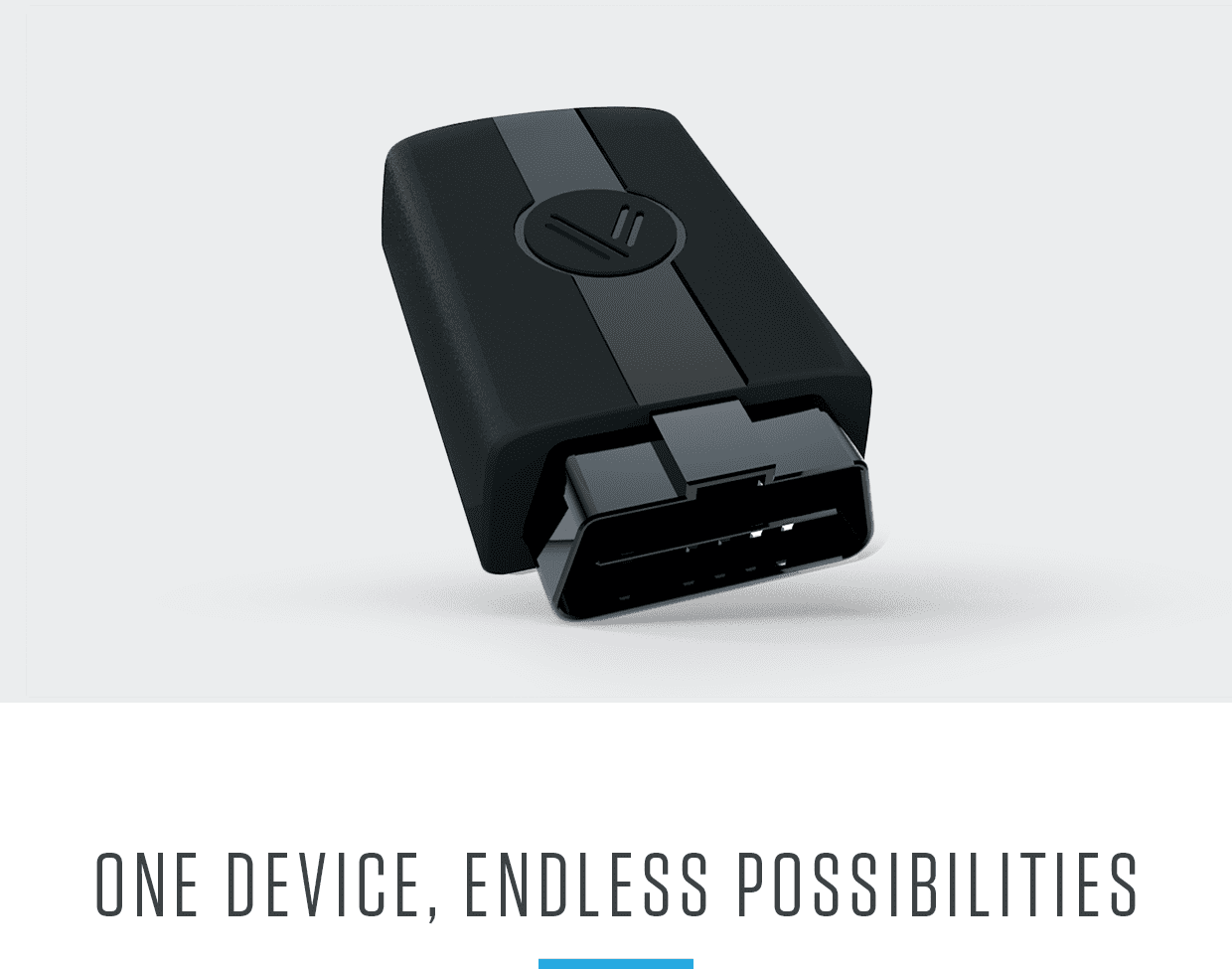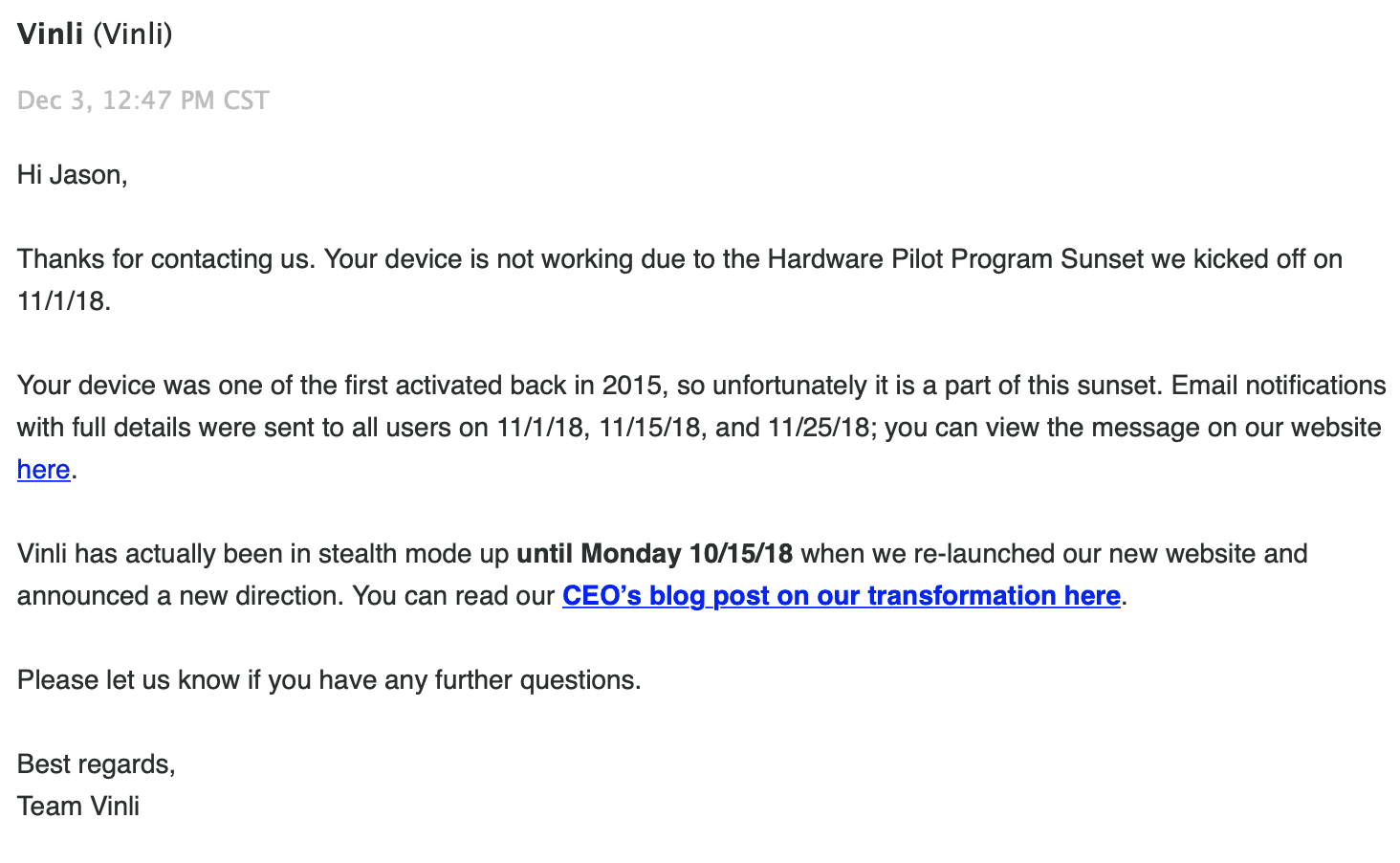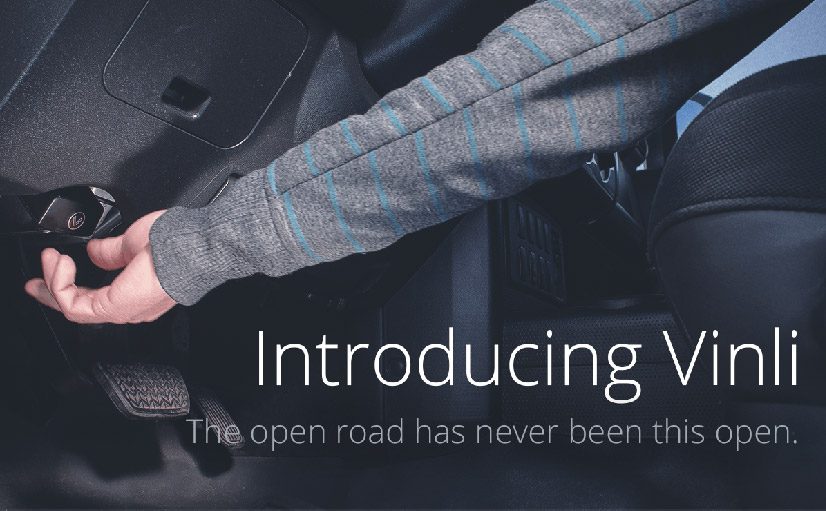I’ve been participating in crowdfunding campaigns since 2011 when I backed a documentary about MMA fighter Jens Pulver. I’ve enjoyed participating in the process of helping to bring products to market – 45 on Kickstarter, 40 Indiegogo – and other than the times I’ve been burned by backing a project that never came to market (which is another blog post) it’s been a fun way of purchasing items.
For this post, I want to focus on the other side of the story: what happens when you get the product, it meets your expectations, you utilize it fully, come to rely upon it…and the company goes out of business or EOLs (end-of-life’s) their product. Many technology products today have a service/app element and that means your hardware has dependencies upon the business model of the company you backed. They brought the item to market that you wanted, but if their business model changes or they go out of business, that thing you bought might just stop working.
Such was the case with a project I backed in 2015 from a company called Vinli. It was a clever car gadget that plugged into the OBD port that most cars made in the last 20 years have (other than EVs) and offered a bunch of great features. It would show you the car’s location in real-time on a map inside the app. It would calculate all kinds of things such as the distance of each drive, total drive time, give you summaries for each week, fuel economy, etc. You could also buy a data plan to turn it into a WiFi hotspot for your vehicle, and they had a third-party app store where developers could create apps to extend the functionality of the Vinli in clever ways. In our era of getting data about everything to influence behaviour, Vinli seemed perfectly poised in the market. I bought one for each of my vehicles and really enjoyed the product.

One day the Vinli app wasn’t showing a connection to the Vinli hardware – this had never happened before. I contacted Vinli support to find out what was going on. Imagine my shock when I received this email below from Vinli support telling me that they were shutting down the service I was using and pivoting the whole company to something new.

So what did Vinli change their focus to? Their blog post explained it thusly:
“Vinli “2.0” is a data intelligence platform that creates new business services for enterprise customers looking to execute on innovative mobility strategies”
That’s a whole lotta’ buzzwords, but the bottom line is that they entirely shut down the consumer side of their business. Why? I’d guess because they had no sustainable business model. I was their customer for almost three years, and beyond paying for the hardware initially, they didn’t get any further money from me – yet I used the app and service constantly and found it valuable. They’d have to be paying the carrier – I believe it was T-Mobile – a monthly fee for the active connection and enough data to do basic location tracking, etc., yet I was paying nothing for it. 🤔
So what was their business model? Customers paying for a WiFi hotspot in the car? Nah, I can turn on my phone’s WiFi hotspot in about five seconds. None of the third party apps that tapped into the Vinli data charged anything either from what I saw. I don’t know how they were planning on creating sustained revenue.
Would I have paid a small monthly fee for the basic data and location tracking? Yes, absolutely. In fact, I bought a replacement product – Automatic CCA – that has very similar functionality to the Vinli and has a monthly fee. It’s not quite as good as Vinli, but close.
Now, to be fair, commercial products get released where the company fails or does a similar “pivot” and you’re stuck with a product that doesn’t work – but typically this takes much longer as the company selling the commercial product has a plan to stay in business. When you’re dealing with a crowdfunded startup however, you never know how long the thing you backed is going to keep functioning. As a result of my experience with Vinli, I’m extra cautious of investing in a product that requires the company to continue supporting it to function.
